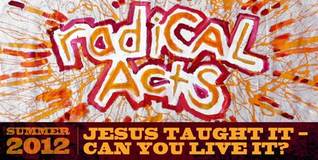 Most Christians will say that the Sermon on the Mount is among their favorite Scriptures, but how many of us actually practice what it preaches? Taken verse by verse, the Sermon on the Mount contains some of Christ Jesus' strictest (read: toughest) teachings. For example, he says, "And if anyone wants to sue you and take your shirt, hand over your coat as well. If anyone forces you to go one mile, go with them two miles. Give to the one who asks you, and do not turn away from the one who wants to borrow from you." Matthew 5:40-42 I think Jesus asks something pretty extraordinary. He asks that we practice a Christianity where our personal losses can be a gain. It is a charity – a level of love that puts the needs of others above our own. Give, love, share, think of others. Do more than they ask, give more than they think they need or want. He says we need to do this. To enjoy giving to others. No self-justification, no feelings of injustice. No ME ME ME in our prayers and giving and doing. Sound hard? The Sermon on the Mount does raise the bar very high. These lessons aren’t always easy to hear. They certainly aren’t always easy to practice. But how much do we want to be able to heal? How much do we really want to change the world? To be a blessing to others? 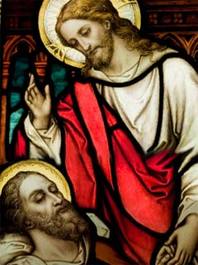 A man once told Jesus that he had followed the Ten Commandments since a child, but he wanted to know what more he needed to do to obtain eternal life. Matthew says, "Jesus said unto him, If thou wilt be perfect, go and sell that thou hast, and give to the poor, and thou shalt have treasure in heaven: and come and follow me. But when the young man heard that saying, he went away sorrowful: for he had great possessions.” Matthew 19:21-22 His problem was not too much stuff. His problem was too much love for his stuff. More love for his stuff than for his own life. Think about it. Releasing materiality he would gain eternal life. Doesn't that sort of indicate that holding onto materiality is certain death? Like a death to freedom, death to joy, death to spiritual progress, death to stress-free, unburdened life? Materiality - the ME ME ME, MINE MINE MINE - has got to go if we want to progress. One day when I was 18, I read in Mary Baker Eddy's Science and Health with Key to the Scriptures, “A great sacrifice of material things must precede this advanced spiritual understanding.” I thought, “But I want to get married! I want a house, a nice car, a good life!” Then, I realized that this was a demand was for a sacrifice of material things - that which could be destroyed, that isn’t fixed or permanent. I realized that I would always have in my life whatever expressed the bounty of God and that supported my practice of prayer and healing – that which is permanent and spiritual.  I remembered this each time I bought a house or car, or even with each marriage. I would ask myself, "Is this just another thing I want? Or does this house or relationship support my spirituality and give me opportunities to serve God and to express good?" If I could answer yes to the second question, I knew there was no risk of loss. Change and progress, yes. But loss, no. In fact, husbands, wives, homes, bank accounts, transportation can be an expression of God's provision and care. We can put the arms of prayer around all the elements of good that supports spiritual progress in our lives. But stockpiling material things for one's personal, exclusive benefit is a deadly form of materialism. One of the "Radical Acts" challenges on Time4thinkers.com is: Sell what you have and give to the poor. One commenter who is striving to put this challenge into practice wrote, "I realized that it wasn’t enough to just sell the stuff that I don’t really care about anymore. But that I needed to sell those things that I still feel have value and worth." Thanks for that, Kate. I thought of my basement packed to the ceiling with boxes of the last treasures I didn't want to part with after our move - things of value, things I still love. Inspiration blew through me like a cool summer breeze. "Let it all go. Give it all to others who need it." So I have started distributing. My goal this summer is to empty the basement of everything except the Christmas decor. Whoa. This is big. And it feels just right. 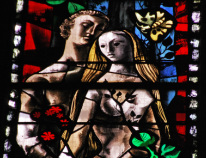 A blog reader sent me the link to this 10 minute sermon given last Sunday by Nadia Bolz-Weber at her church, House for All Sinners and Saints, in Denver, Colorado, where she is the founding pastor. She makes some really helpful points, so I am passing it along to you as the Prayer MOJO post for this week. I recommend that you listen to, rather than read, her message, because preaching is a spoken art form. To hear her sermon, be sure your speakers are on, and click the button: If you prefer to read the sermon, the following is the intro. A link at the end will take you to her full text. 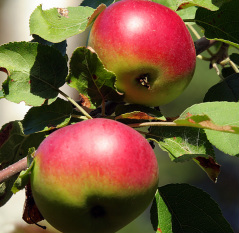 "A couple hours ago on Facebook, Catherine posted that she had just seen a snake on her hike. As her pastor I thought it best to reply, “If it starts talking, don’t listen.” "This likely came to mind since I was editing this very sermon about Adam and Eve. The story of the Garden of Eden is what is called an origin story and every culture has theirs. Origin stories tell us how the world came about and where we came from and other important things like why snakes don’t have legs. We think we might know our origin story really well, but in the Genesis account of the Garden of Eden, there actually is no mention of sin, or a fall, or Satan, or temptation, and I hate to break it to you but there wasn’t even an apple involved. Which means the cultural understanding of the story of the Garden of Eden is slightly corrupted. This is due in part to the countless paintings throughout the history of Western art which for some reason portray a tree and a snake and an extremely white Adam and Eve holding a Red Delicious. "See, for generations folks have called the tale of Adam and Eve and the serpent and the forbidden fruit “The Fall from grace” or “The story of Original Sin." "That's a little weird to me. Like, God created the heavens and the Earth and animals and it was like, this awesome all-inclusive primeval club-med for Adam and Eve – they ran naked through the warm sunlight of an idyllic paradise and everything was theirs for the taking – except for that one tree that they were told to steer clear of. And this absolute paradise in the garden between God and Humanity lasted approximately 20 minutes. Until Eve had a chat with a talking snake and then disobeyed God and ate the forbidden fruit. And because Eve, ate some fruit she was told not to, now all of humanity is cursed and this so-called original sin of Eve’s became sort of like a sexually transmitted disease. 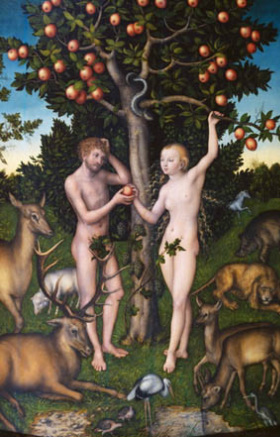 "Because now, according to this version of what the story is about, every person born after that inherited original sin from Eve. That’s right. Eve messed it up for everyone by eating some piece of fruit God told her not to. Which feels kinda unfair to her and kinda unfair to us. But this is what we are told the story is about. "See, religion has taught many of us that the story of Adam and Eve is a story primarily about their disobedience. And that the fracture in the relationship between God and humanity is caused by us breaking God’s arbitrary little rules. So it feels like maybe religion was established just so we could be certain about what rules we need to follow in order for our relationship with God to be a loving, peaceful one. "But this week, after reflecting on several conversations I’ve had with many of you about your lives and identities and the struggles we all have to hear the truth of who we are, well, I started to wonder if the real damage to the relationship between Adam and Eve and God wasn’t the rule breaking nearly as much as it was in allowing themselves to believe lies about themselves and God. See, the serpent lied to them about who they were and who God was and like all the most dangerous lies, these lies the serpent told were just close enough to the truth to be really destructive...." Find full sermon. You wouldn't believe how far your appreciation goes when shared.
If you like what you see in this blog, please pass it along to your friends, fans and followers. Every "like", tweet and share touches many, many people. A full-text version of the blog can be delivered to your email inbox. Please subscribe in the sidebar. You may also wish to: VISIT MY WEBSITE HOME PAGE READ MORE BLOG POSTS FIND A LIST OF MY OTHER PUBLISHED CONTENT |

Find me on YouTube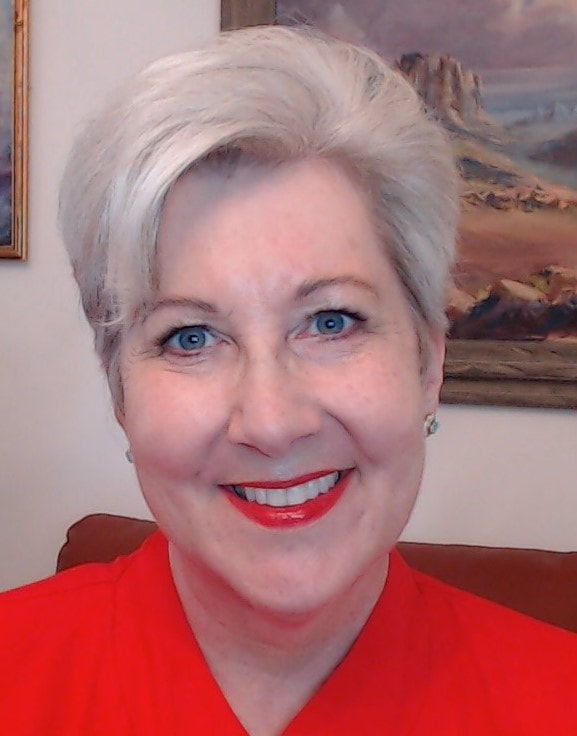
I have practiced Christian Science professionally in some form since 1979. But my journey with Christian Science started in a Sunday school where as a young child I was taught the Scriptures and some simple basics of Jesus' method of scientific Christian healing. A significant experience at the age of twelve opened my eyes to the great potential of this practice. After impaling my foot on a nail, I prayed the way I had learned in Sunday school. Within moments the pain stopped and healing began. By the next morning the wound had disappeared completely. Having experienced the great potential of Christian Science, there would be no turning back. |
INFORMATION |
SERVICES |
HELP |
© 2011-2024 Michelle Boccanfuso Nanouche, CSB. All rights reserved. Pages updated February 6, 2024.

 RSS Feed
RSS Feed
